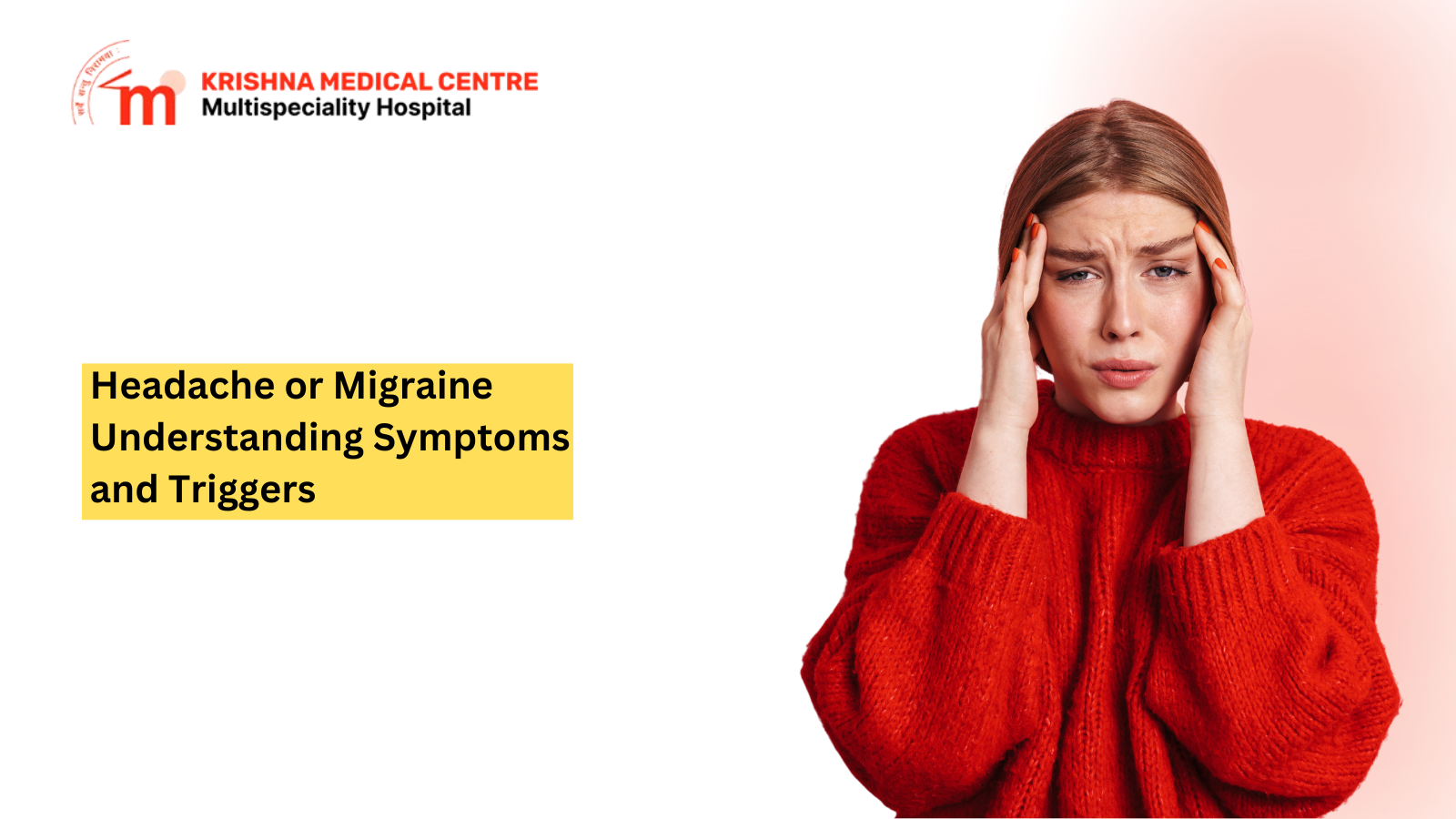

Beware of frauds: Online appointments are available only after confirmation with the hospital for any of our consultant doctors.


Headache disorders constitute a global health disorder; as of 2021, approximately 40% or 3.1 billion people worldwide reported experiencing such conditions according to the WHO. This condition is more common among females than males and is considered among the three most common neurological disorders across most age groups, from as early as 5 to 80 years old. Heads are a common issue but migraines are a severe and more complex condition. It is therefore necessary to understand the difference between the two for effective management and treatment. Read on to learn about the symptoms, common triggers, and strategies for managing migraines.
Although both headaches and migraines involve pain in the head, they are distinct conditions with different causes, symptoms, and treatments.
Recognising the symptoms can help individuals seek appropriate care and prevent migraines from worsening over time.
Understanding what triggers headaches and migraines can help manage or prevent them effectively.
Identifying your triggers is essential for managing symptoms and avoiding migraine episodes.
While migraines can be very challenging to manage, certain lifestyle changes help lower their frequency and severity:
These steps, combined with medical advice, can significantly improve your quality of life.
Not all headaches or migraines require immediate medical attention, but certain warning signs should prompt you to consult a healthcare provider:
Seeking professional help is crucial to rule out underlying conditions and develop an effective treatment plan.
The first point of entry towards effective management is the difference between a headache and a migraine. Understanding symptoms, identifying triggers, and adopting a proactive lifestyle can provide huge differences in the reduction of frequency and impact of migraine. Early diagnosis and treatment form a fundamental method in the management of this condition that can eventually improve your quality of life.
Do you experience frequent headaches or debilitating migraines? Allow us to help you with that. At Krishna Medical Centre, our team of specialists offers expert diagnosis and personalised treatment plans for your needs. It might be finding triggers, prescription medication for the prevention of migraine attacks, or offering advanced care. We are here to assist you in getting back on track to living a life free of pain. Schedule an appointment today.